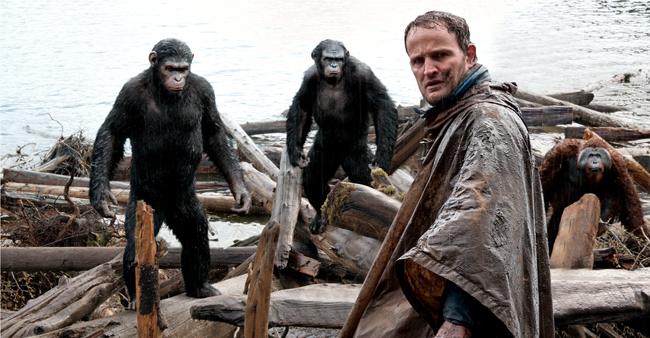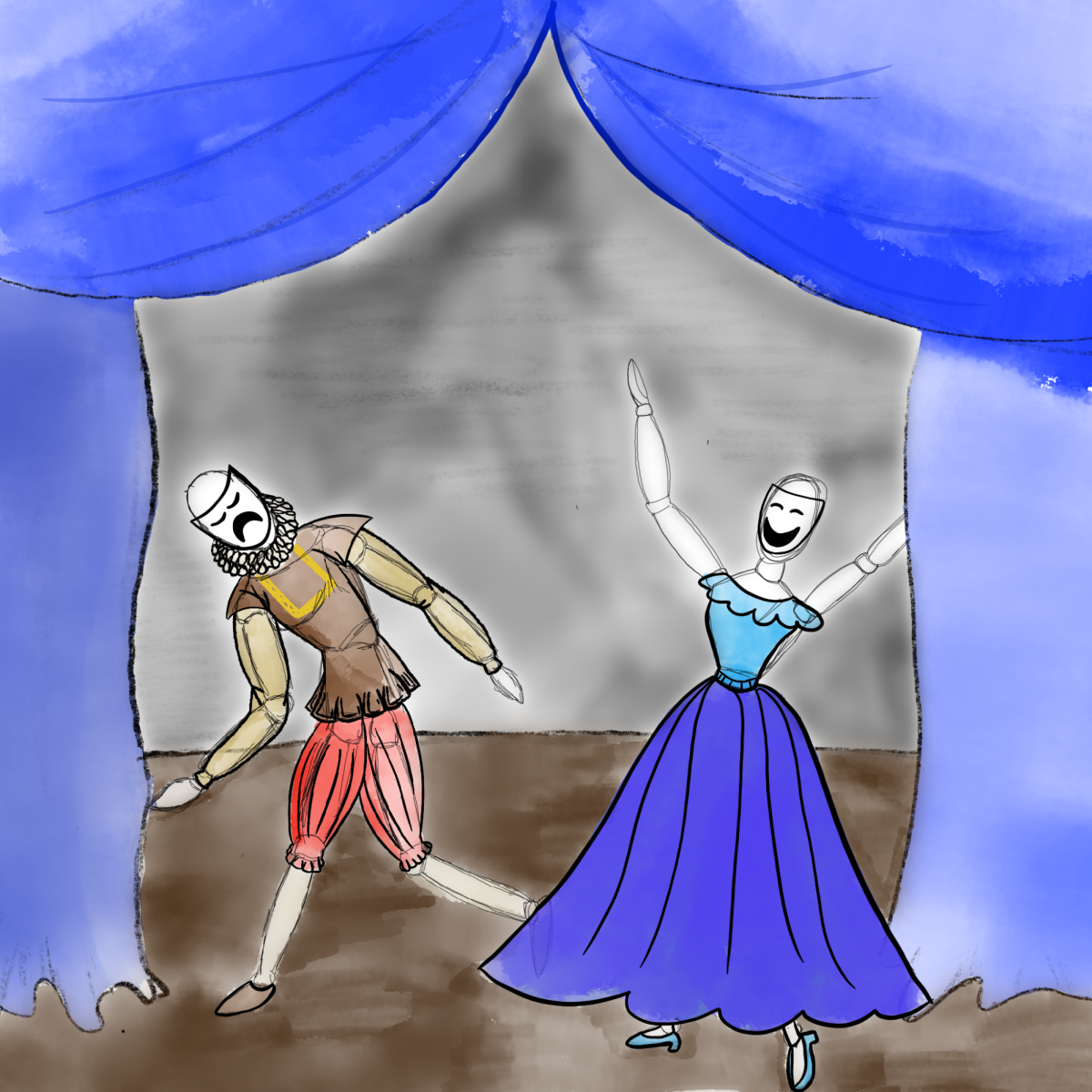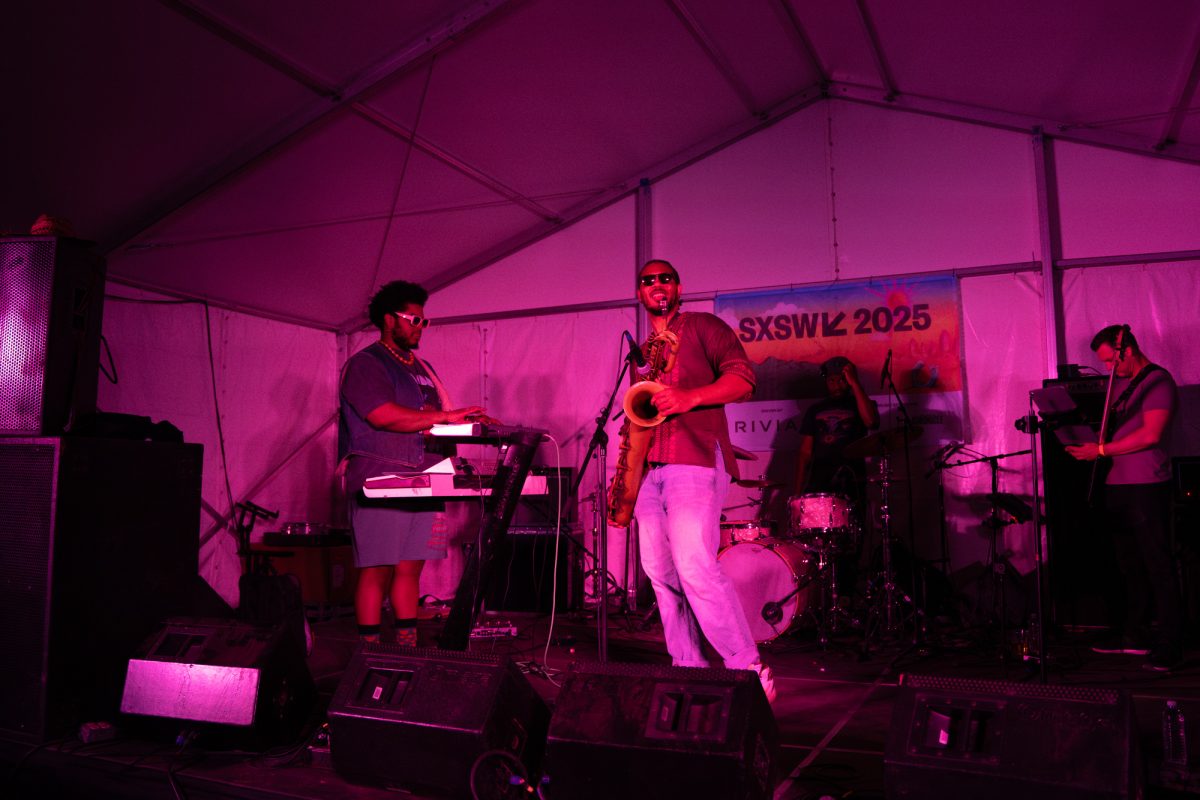As with any prequel, audiences head into “Dawn of the Planet of the Apes” already knowing how it ends. Obviously, the super-intelligent apes led by Caesar (Andy Serkis) prevail, so the film has to find another way to get viewers invested in an inevitable outcome. “Dawn of the Planet of the Apes” takes an unusual route, populating both sides of the human-ape war to come with likable, intriguing characters, and telling its story as a grand tragedy. The result is an effective and wrenching summer blockbuster in which the action actually matters, and is ultimately one of the summer’s best films.
“Dawn” picks up ten years after its now illogically titled predecessor, “Rise of the Planet of the Apes,” left off: humanity has been reduced to ruin by an outbreak of the Simian flu, the same virus that made Caesar and his band of apes super-intelligent. Caesar leads a massive colony in the forests outside San Francisco, and they’re enjoying a peaceful life when they stumble across a small band of humans led by Malcolm (Jason Clarke). From there, conflict is inevitable, even as Caesar and Malcolm scramble to hold onto the fleeting peace. Perhaps the most interesting aspect of “Dawn” is that the humans are entirely secondary characters. While King Kong, Gollum and others have made Andy Serkis the de facto master of motion capture performances, this is the first time a film has rested entirely on him, and he shoulders the weight effortlessly. His performance as Caesar was the highlight of the first film, but his work here is stunning and transformative. Serkis believably captures a range of recognizable emotions and struggles and makes them feel relatable, even selling the stunted dialogue that the script hands him, and the rest of the cast builds from the strong foundation that Serkis provides
Although Serkis’ performance is remarkable, “Dawn” is able to impressively round out an entire cast of apes. As Koba, an ape from the first film who was tortured by human scientists, Toby Kebbell gives a beautifully complex performance. Koba is a savage, wounded soul, driven entirely by his anger toward humanity, and shares a fascinating dynamic with Caesar — a conflict between two apes that feels human, and is ultimately devastating thanks to the strength of the performers. Even minor ape characters make an impression, from Karin Konoval’s carefully intelligent work as Maurice to Doc Shaw’s tragic, conflicted arc as Ash.
Much like in the first film, the human characters aren’t as interesting as their ape counterparts, but director Matt Reeves stocks the human side of the conflict with reliable performers. Jason Clarke’s Malcolm has built a family with Ellie (Keri Russell) and Alexander (Kodi Smit-McPhee), and their drive to protect that unit is made all the more powerful by the slight fear in their performances — each character has lost a family before, and they never take this one for granted. The strong characters on both sides of the roster are what make “Dawn of the Planet of the Apes” so special. Most summer blockbusters are built around the moment when good and evil come to blows, and while “Dawn” certainly delivers on the fight scenes, the tenuous bond between human and ape is captured with such optimism that its collapse is wrenching to behold. In the big picture, that’s the film’s greatest achievement: telling its story so well that the trappings of the blockbuster are rendered tragic results of a long series of thorny moral questions, every action scene landing all the harder because the viewer is so invested in the conflict.
A lot of this is thanks to Matt Reeves, who took over the franchise with this film. Reeves literally pushed the boundaries of technology with this film, taking sensitive 3-D cameras and performance-capture suits and putting them in punishing physical environments. More than that, he tells the film’s sweeping story concisely, making every moment significant and finding numerous small parallels between the apes and the humans. There are several remarkably staged moments to boot, Reeves’ camera effortlessly finding the characters in a surging crowd or following an out-of-control tank during the film’s first major fight scene
“Dawn of the Planet of the Apes” isn’t the best film of the summer because of how stubbornly it refuses to follow the easy blockbuster formula — Matt Reeves’ steady hand, the visually and emotionally stunning performances from Serkis and co. and the delicate, painful story all make it a must-see. But it’s also a film that challenges its peers to be better, demonstrating great advances in visual effects and sophisticated storytelling, and it’s the ambition in every aspect of “Dawn of the Planet of the Apes” that makes it the summer’s best film.





















